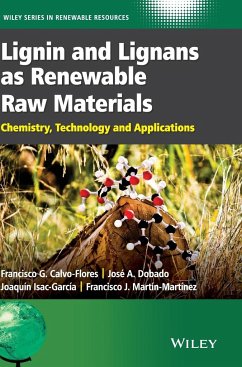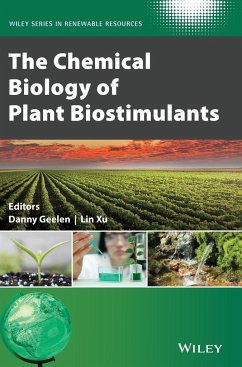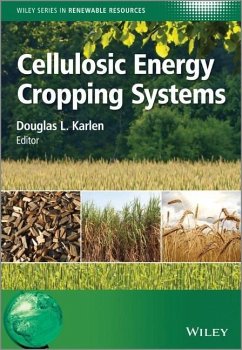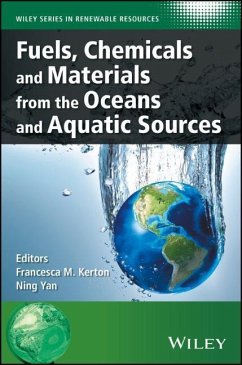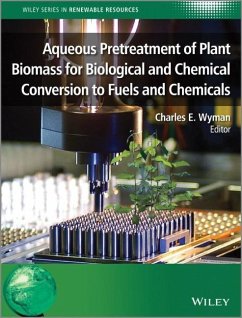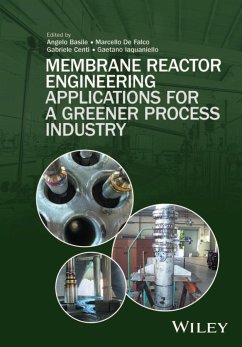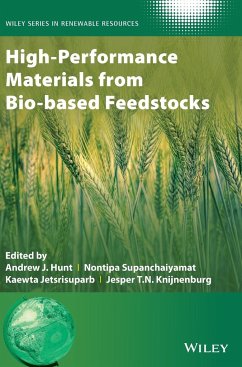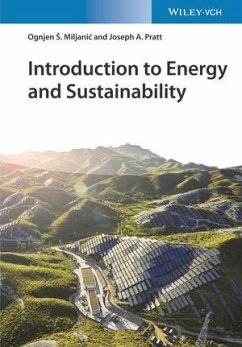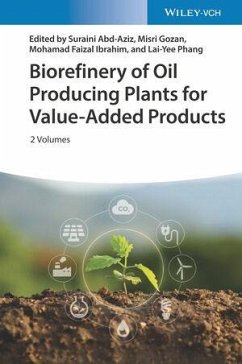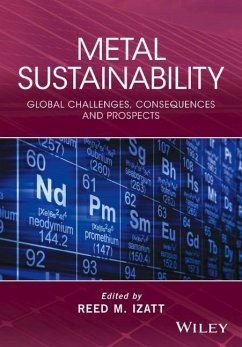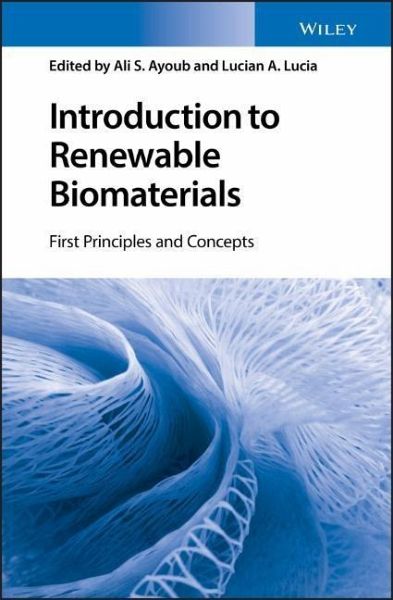
Introduction to Renewable Biomaterials
First Principles and Concepts
Herausgegeben: Ayoub, Ali S.; Lucia, Lucian A.
Versandkostenfrei!
Versandfertig in über 4 Wochen
76,99 €
inkl. MwSt.
Weitere Ausgaben:

PAYBACK Punkte
38 °P sammeln!
Covers the entire evolutionary spectrum of biomass, from its genetic modification and harvesting, to conversion technologies, life cycle analysis, and its value to the current global economyThis original textbook introduces readers to biomass--a renewable resource derived from forest, agriculture, and organic-based materials--which has attracted significant attention as a sustainable alternative to petrochemicals for large-scale production of fuels, materials, and chemicals. The current renaissance in the manipulation and uses of biomass has been so abrupt and focused, that very few educationa...
Covers the entire evolutionary spectrum of biomass, from its genetic modification and harvesting, to conversion technologies, life cycle analysis, and its value to the current global economy
This original textbook introduces readers to biomass--a renewable resource derived from forest, agriculture, and organic-based materials--which has attracted significant attention as a sustainable alternative to petrochemicals for large-scale production of fuels, materials, and chemicals. The current renaissance in the manipulation and uses of biomass has been so abrupt and focused, that very few educational textbooks actually cover these topics to any great extent. That's why this interdisciplinary text is a welcome resource for those seeking a better understanding of this new discipline. It combines the underpinning science of biomass with technology applications and sustainability considerations to provide a broad focus to its readers.
Introduction to Renewable Biomaterials: First Principles and Concepts consists of eight chapters on the following topics: fundamental biochemical & biotechnological principles; principles and methodologies controlling plant growth and silviculture; fundamental science and engineering considerations; critical considerations and strategies for harvesting; first principles of pretreatment; conversion technologies; characterization methods and techniques; and life cycle analysis. Each chapter includes a glossary of terms, two to three problem sets, and boxes to highlight novel discoveries and instruments. Chapters also offer questions for further consideration and suggestions for further reading.
_ Developed from a successful USDA funded course, run by a partnership of three US universities: BioSUCEED - BioProducts Sustainability, a University Cooperative Center for Excellence in Education
_ Covers the entire evolutionary spectrum of biomass, from genetic modification to life cycle analysis
_ Presents the key chemistry, biology, technology, and sustainability aspects of biomaterials
_ Edited by a highly regarded academic team, with extensive research and teaching experience in the field
Introduction to Renewable Biomaterials: First Principles and Concepts is an ideal text for advanced academics and industry professionals involved with biomass and renewable resources, bioenergy, biorefining, biotechnology, materials science, sustainable chemistry, chemical engineering, crop science and technology, agriculture.
This original textbook introduces readers to biomass--a renewable resource derived from forest, agriculture, and organic-based materials--which has attracted significant attention as a sustainable alternative to petrochemicals for large-scale production of fuels, materials, and chemicals. The current renaissance in the manipulation and uses of biomass has been so abrupt and focused, that very few educational textbooks actually cover these topics to any great extent. That's why this interdisciplinary text is a welcome resource for those seeking a better understanding of this new discipline. It combines the underpinning science of biomass with technology applications and sustainability considerations to provide a broad focus to its readers.
Introduction to Renewable Biomaterials: First Principles and Concepts consists of eight chapters on the following topics: fundamental biochemical & biotechnological principles; principles and methodologies controlling plant growth and silviculture; fundamental science and engineering considerations; critical considerations and strategies for harvesting; first principles of pretreatment; conversion technologies; characterization methods and techniques; and life cycle analysis. Each chapter includes a glossary of terms, two to three problem sets, and boxes to highlight novel discoveries and instruments. Chapters also offer questions for further consideration and suggestions for further reading.
_ Developed from a successful USDA funded course, run by a partnership of three US universities: BioSUCEED - BioProducts Sustainability, a University Cooperative Center for Excellence in Education
_ Covers the entire evolutionary spectrum of biomass, from genetic modification to life cycle analysis
_ Presents the key chemistry, biology, technology, and sustainability aspects of biomaterials
_ Edited by a highly regarded academic team, with extensive research and teaching experience in the field
Introduction to Renewable Biomaterials: First Principles and Concepts is an ideal text for advanced academics and industry professionals involved with biomass and renewable resources, bioenergy, biorefining, biotechnology, materials science, sustainable chemistry, chemical engineering, crop science and technology, agriculture.




